
Robert Smith Candlish was a Scottish minister who was a leading figure in the Disruption of 1843. He served for many years in both St. George's Church and St George's Free Church on Charlotte Square in Edinburgh's New Town.
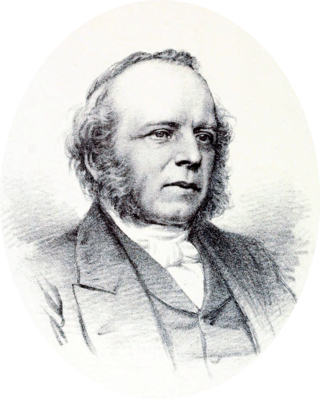
Andrew Alexander Bonar was a minister of the Free Church of Scotland,a contemporary and acquaintance of Robert Murray M'Cheyne and youngest brother of Horatius Bonar.

David Welsh FRSE was a Scottish Presbyterian minister and academic. He was Moderator of the General Assembly of the Church of Scotland in 1842. In the Disruption of 1843 he was one of the leading figures in the establishment of the Free Church of Scotland.

James Begg was a minister of the Free Church of Scotland who served as Moderator of the General Assembly 1865/66.

Thomas M'Crie was a Presbyterian minister and church historian. He was a Scottish Secession minister who joined the Free Church of Scotland and served as the Moderator of the General Assembly to that church 1856/57.
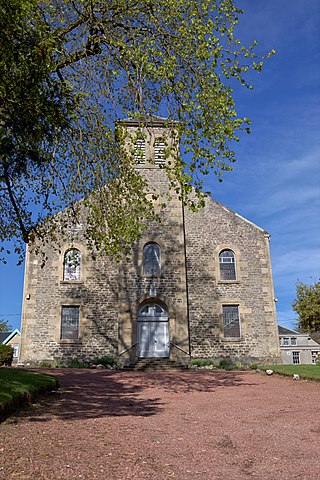
Abbeygreen Church is a congregation of the Free Church of Scotland in the small town of Lesmahagow,Lanarkshire. As a Christian congregation,it is presbyterian and reformed;holding the Word of God,the Holy Bible,as the supreme rule of life and doctrine and the Westminster Confession of Faith as a sub-ordinate standard,which helps explain the doctrines of the Christian faith. Being Presbyterian,it serves as part of the Free Church of Scotland Presbytery of Glasgow and seeks to faithfully serve God in Lesmahagow and the surrounding area. Having a missional outlook it is involved with a number of missionary organizations including,but not only,UFM Worldwide and Rose of Sharon Ministries,and helps with the organization and support of the Scottish Reformed Conference.

Hew Scott (1791–1872) was a minister of the Church of Scotland parish of Anstruther Wester. He is largely remembered as a religious researcher and author. His "magnum opus" is the comprehensive,multi-volume work,Fasti Ecclesiae Scoticanae:The succession of ministers in the parish churches of Scotland,from the reformation,A.D. 1560,to the present time. This is a detailed,biographical record of each of the ministers of each of the parishes of the Church of Scotland from 1560 to 1870.. It was first published between 1866 and 1871 but it is regularly updated by the Church of Scotland.
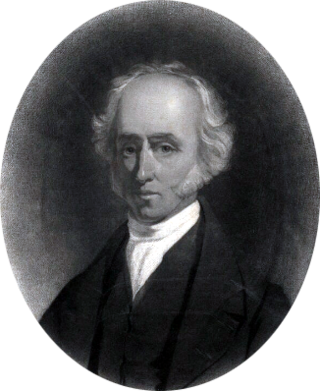
Robert Gordon FRSE was a Scottish minister and author. Originally prominent in the Church of Scotland,and serving as Moderator of the General Assembly in 1841,following the Disruption of 1843 he joined the Free Church of Scotland and became a prominent figure in that church.
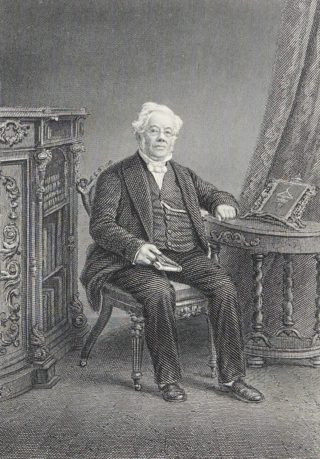
Robert Burns (1789–1869) was a Scottish theological writer and church leader.

William Arnot (1808–1875) was a Scottish minister and theological writer. He served in the Church of Scotland but moved to the Free Church of Scotland at the Disruption of 1843.
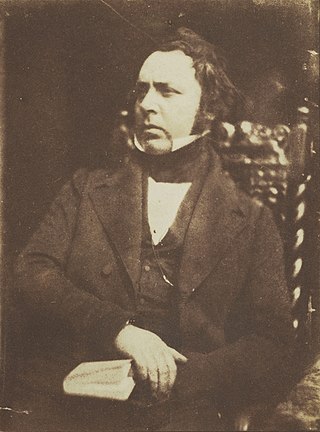
James Bannerman was a Scottish theologian. He is best known for his classic work on Presbyterian ecclesiology,The Church of Christ.
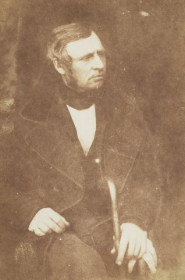
John Cook (1807–1874) was a Scottish minister who served as Moderator of the General Assembly of the Church of Scotland for the year 1866/67. In common with other members of the ecclesiastical family of Cook,he was a strong supporter of the moderate party in the Scottish church.
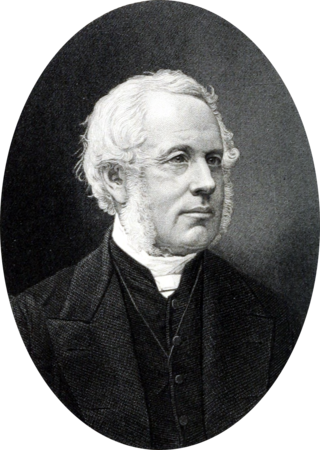
Robert Buchanan (1802–1875) was a Scottish Presbyterian minister and historian who served as Moderator of the General Assembly to the Free Church of Scotland in 1860/61. He was one of the leading figures in the Disruption of 1843.

Alexander Neil Somerville (1813–1889) was a Scottish minister and evangelist,who served as Moderator of the General Assembly for the Free Church of Scotland at Inverness in 1886/87. Glasgow University called him "Missionary to the World".

James Chalmers Burns was a Scottish minister,who served as Moderator of the General Assembly for the Free Church of Scotland 1879/80.
William Nixon (1803–1900) was a Scottish minister of the Free Church of Scotland who served as Moderator of the General Assembly in 1868/69. In Montrose he was nicknamed the "Lion of St John's".

Walter Ross Taylor (1805–1896) was a Scottish minister of the Free Church of Scotland who served as Moderator of the General Assembly 1884/85.
William Wilson was born in Glasgow,on 9 November 1690. He was the son of Gilbert Wilson,proprietor of a small estate near East Kilbride.. William Wilson's mother was Isabella,daughter of Ramsay of Shielhill. William was named after William of Orange and was educated at University of Glasgow,graduating with an M.A. in 1707. He was licensed by the Presbytery of Dunfermline on 23 September 1713 and called unanimously on 21 August 1716. He was ordained on 1 November 1716. He had a call to Rhynd,but was continued by the Presbytery in Perth. Associating with the supporters of the Marrow of Modern Divinity,he with three others Ebenezer Erskine,Alexander Moncrieff,and James Fisher laid the foundation of the Secession Church,for which they were suspended by the Commission of Assembly 9 August,and declared no longer ministers of the Church 12 November 1733. He was deposed by the Assembly 15 May 1740. He and his people erected a meeting-house,and the Associate Presbytery appointed him their Professor of Divinity,5 November 1736,but he sank under his contentions and labours and died 8 October 1741. He is said to have combined "the excellencies of both Erskines,with excellencies peculiar to himself."

William Symington was a Scottish Presbyterian minister. He took a deep interest in bible circulation,home and foreign missions,and other religious movements.

Thomas Brown was a Scottish Presbyterian minister who served in St John's church in Glasgow. After many years in the Church of Scotland ministry he walked out during the schism known as The Disruption and joined the Free Church of Scotland. He was elected the second-ever moderator of the Free Church in October 1843.



















